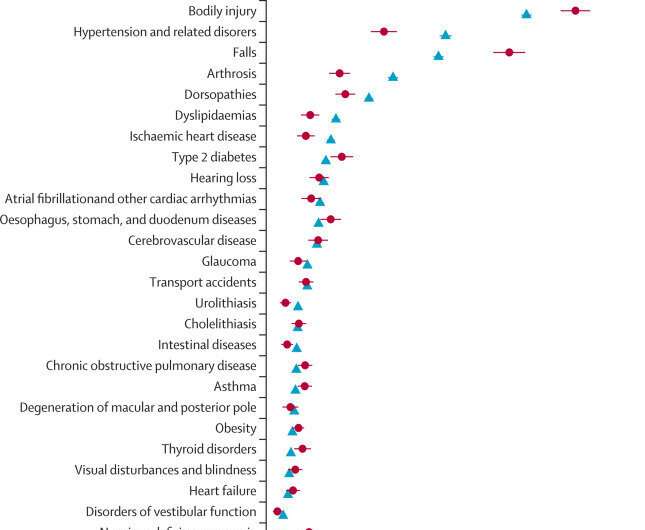This article has been reviewed according to Science X's editorial process and policies. Editors have highlighted the following attributes while ensuring the content's credibility:
fact-checked
trusted source
proofread
Autistic adults at substantial risk of injuries and age-related conditions, finds population-based study

Older autistic adults have a significantly higher risk of injury, especially self-inflicted, and physical conditions such as type 2 diabetes, anemia, heart failure and COPD. This is according to a large-scale registry study from Karolinska Institutet published in The Lancet Healthy Longevity.
"We found an increased disease burden in middle-aged and older autistic adults, both men and women, irrespective of the presence of intellectual disability," says Shengxin Liu, doctoral student at the Department of Medical Epidemiology and Biostatistics, Karolinska Institutet. "Our findings point up the need to improve the support and care of older autistic adults."
In the population-based study, the KI researchers linked different national registers and compared the risk for five types of injury and 39 age-related physical conditions in people over the age of 45. Of the four million-plus people born between 1932 and 1967, 1,930 women and 3,361 men had an autism diagnosis. For each physical condition, they evaluated the 25-year cumulative incidence and the relative risk in autistic people compared with non-autistic people of the same sex and age.
Seven-fold risk of self-harm
Autistic people had a higher risk of four of five studied injures, for which self-harm accounted for the greatest risk increase, followed by poisoning, falls and other physical injuries.
"The risk of self-harm was worryingly high, a full seven times higher than in non-autistic people," says Liu. "Reasons behind this remain largely unknown. One possible contributing factor could be mental health conditions that commonly co-occur with autism, such as anxiety and depression."
The researchers also found a risk increase for 15 physical conditions. For example, autistic people had three times the risk of anemia and glucose dysregulation and almost double the risk of heart failure, type 2 diabetes, and COPD (chronic obstructive pulmonary disease).
Multiple contributory factors
"We now need to find out the cause of these associations and how they are affected by factors such as biology, age when diagnosed with autism, psychotropic treatment and psychosocial environment," says the study's last author Mark Taylor, senior researcher at the Department of Medical Epidemiology and Biostatistics, Karolinska Institutet. "But most importantly, researchers, health services and policymakers need to cooperate to make sure that older autistic adults have a better quality of life."
Since this was an observational study, no causal relationships can be ascertained, and the researchers were not able to take into account variables such as socioeconomic status. Furthermore, given that the study used Swedish registers, it is difficult to make generalizations to other countries.
More information: Shengxin Liu et al, Age-related physical health of older autistic adults: a longitudinal, retrospective, population-based cohort study, The Lancet Healthy Longevity (2023). DOI: 10.1016/S2666-7568(23)00067-3. www.thelancet.com/journals/lan … (23)00067-3/fulltext





















